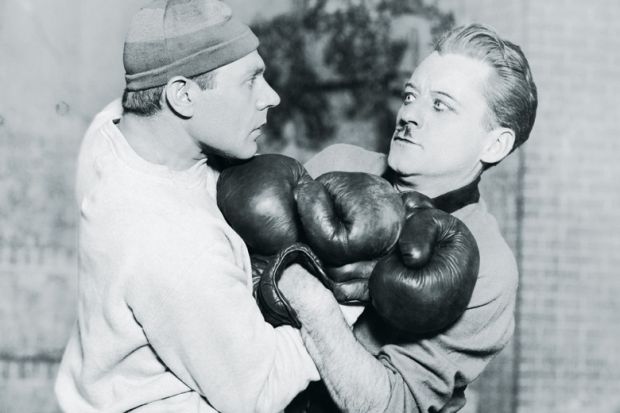The UCU has had tremendous successes over the past year. In particular, 14 days of strikes in pre-92 universities forced employers to give up plans to abolish guaranteed, defined benefit Universities Superannuation Scheme pensions and 16,000 new members have joined the union.
This has been achieved in part because many employers, frankly, behaved stupidly, which infuriated staff, and also through innovative “Get The Vote Out” campaigns and consultative e-ballots that helped build support for industrial action.
Yet, as reported in Times Higher Education, the UCU’s congress degenerated into chaos after its support staff walked out over two motions critical of the general secretary Sally Hunt – a no-confidence motion calling for her immediate resignation and a censure motion.
Congress should have been an event celebrating the past year and the union’s renewed strength. Instead, it fell apart and trade unionists found themselves in dispute with fellow trade unionists in their employ. How can victory have been turned so nearly into defeat?
The explanation lies mainly in the unusual position of the general secretary as both employee and elected leader: in the latter capacity, she is accountable to members; in the former, her conduct is subject to disciplinary processes set out in her employment contract.
The problem with the contentious motions was that they made unsubstantiated – indeed inaccurate – allegations and bypassed and pre-empted due process for dealing with complaints about Ms Hunt’s conduct. This led to UCU staff walking out to hold an emergency meeting of their Unite branch and congress business being suspended and then, after efforts to find a compromise failed, brought to an early close.
The clash, therefore, arose initially between delegates with genuine concerns about union democracy and a desire to hold an elected official accountable, and paid staff and other delegates who felt that natural justice demanded that due process be followed before any no-confidence or censure motions were openly debated and voted on.
However, the explanation also lies partly in the way that the situation was exploited by ultra-left members in the UCU Left, a faction dominated by the Socialist Workers Party, in an effort to oust Ms Hunt and take control of the union: in other words, it was a failed coup attempt.
These ultra-left activists were disappointed when Ms Hunt defeated their candidate in last year’s election and angry about losing the argument over the USS when UCU members voted in April by a majority of 64 per cent on a 64 per cent turnout to call off further strikes over the summer exam period: a result that by itself disproves the myth, repeated at congress, that most of the UCU’s pre-92 members were keen to continue striking but that the union leadership “stole victory” from them.
The no-confidence motion also claimed that there is a “democratic deficit” in the union because Ms Hunt misled members when she wrote to them about the USS ballot. There is a democratic deficit, but that is not it.
The UCU, like other unions, consists of three main groups: paid staff, activists who take the lead in organising branches, strikes and picket lines, and the wider membership whose involvement is more sporadic and varied. The UCU Left claims to be for a “member-led union” but its dominant SWP group, being a Trotskyist revolutionary vanguardist party, is actually for an activist-led union: hence their opposition to balloting members on the USS and to the introduction of consultative e-ballots, Get The Vote Out and other means by which the wider membership has the ultimate say.
Congress is, almost by definition, attended by activists, but this means that it is not necessarily representative of the wider UCU membership and can be dominated by small, well-organised groups such as the SWP. And since the UCU Left is the only faction with its own UK-wide member list and separate annual subscriptions (up to £30 per year), new activists naturally gravitate to it. That is the real democratic deficit.
This will no doubt be vociferously denied by the many thoroughly decent supporters of the UCU Left who are not ultra-left. However, it is disingenuous to deny and naive not to recognise the leading role played in the UCU Left by the SWP and ultra-left allies with their own political agendas.
The challenge now is for more moderate UCU members to unite and reclaim congress so that we can build on the union’s successes and continue defending pensions, pay, jobs and the rights of trade unionists (including those in our employment). That is how to avoid turning victory into defeat.
Adam Ozanne is a senior lecturer in the School of Social Science at the University of Manchester and a member of the UCU National Executive Committee.
